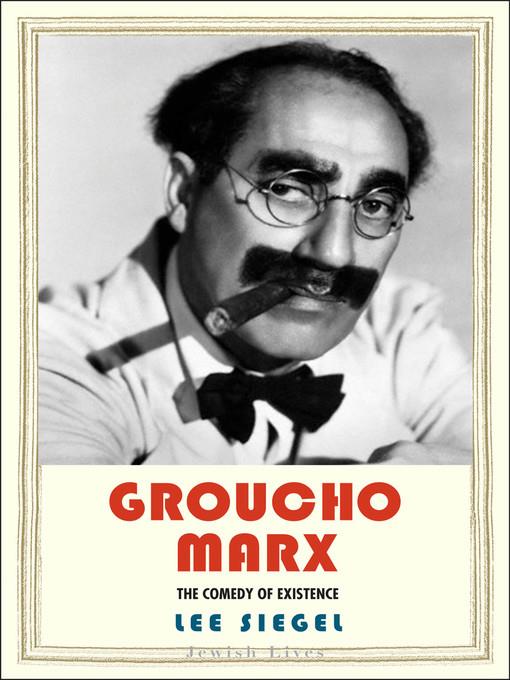
Groucho Marx
The Comedy of Existence
کتاب های مرتبط
- اطلاعات
- نقد و بررسی
- دیدگاه کاربران
نقد و بررسی

November 2, 2015
Born in October 1890, Julius Henry Marx was the third of five surviving sons, and he would grow up to become Groucho, the most famous of the Marx Brothers. Drawing heavily on previous biographies and other studies of the vaudevillian, film star, comedian, and television host, journalist Siegel (Are You Serious?) provides a captivating glimpse of how Marx turned himself into a legend. Siegel examines in detail Marx’s most acclaimed films with his brothers, such as Duck Soup and A Night at the Opera, as well as his days on the stage, to highlight how Marx seamlessly blended stage persona and personal identity. For example, Siegel observes that Marx turned his anxiety about being a nobody back on itself with his famous joke about not wanting to belong to a club that would have him for a member, thereby “negat the world around him to carve out a private freedom.” Siegel covers topics including Marx’s misogyny, his television career as host of You Bet Your Life, and the essentially Jewish character of his humor. While Siegel offers no new information about Marx’s life, he encourages readers to see the films again, for they contain “Groucho’s fullest disclosure of who he really was.”

November 1, 2015
An unsparing look at the abrasive performer.Cultural critic Siegel (Against the Machine: Being Human in the Age of the Electronic Mob, 2008, etc.), winner of the National Magazine Award for Reviews and Criticism, contributes to the Jewish Lives series with a biography of the misogynist, disdainful Julius Henry Marx, nicknamed Groucho because of his "sour, bitter nature." Siegel argues that Groucho's stage persona was consistent with his real personality: "Groucho embodies the spirit of nihilism," the author asserts, "yet his biographers and various commentators always try to impart some positive or affirmative quality to him." He finds the sources of that nihilism in his early life: the middle son of five brothers, he had a "marginal position in his parents' household." The most intellectual of his siblings, he wanted to become a physician. Instead, his mother yanked him out of grade school and sent him out to work to earn money for the impoverished family. His father was weak-willed, his mother domineering, and the young boy, "wounded by his mother," became a performer "whose aggression toward women is at the forefront of every film." Siegel analyzes--and sometimes overanalyzes--the Marx Brothers' movies, identifying instances of Groucho's "abuse and invective" to show how his routines "on stage and screen were seamless with the rhythms of his temperament as he passed through everyday life." In keeping with this series' focus on Jewish identity, Siegel examines Marx's connection to his cultural heritage. He concludes that his comedy "has deep roots in Jewish forms of irony and social dissent," disdain for authority, and sense of displacement and ostracism that resulted in "explicit contempt for other people." The man who emerges from these pages is difficult, unlikable, and brash, and his humor coarse. Siegel identifies Lenny Bruce as his heir rather than Woody Allen, with whom he is sometimes compared. A perceptive, though dark, portrait.
COPYRIGHT(2015) Kirkus Reviews, ALL RIGHTS RESERVED.

























دیدگاه کاربران